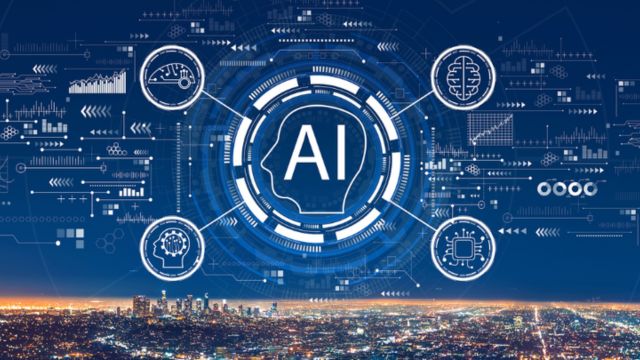Artificial intelligence (AI) is revolutionizing industries, reshaping economies, and redefining the future of work. Recognizing the strategic importance of AI, the United States launched the National AI Initiative Act (NAIIA) of 2020, a comprehensive framework designed to position the country as a global leader in AI research, development, and deployment. But what exactly does this Act entail, and how is it impacting the AI ecosystem in the U.S.? Let’s break it down.
Why Was the National AI Initiative Act Introduced?
The global race for AI supremacy is intensifying, with countries like China and the EU making significant investments in AI technologies. The NAIIA was introduced to ensure that the U.S. remains at the forefront of AI advancements while safeguarding national security and promoting responsible AI use.
According to the National Artificial Intelligence Initiative Office, the Act has five primary objectives:
- Boost AI Research and Development
- Establish Ethical Standards and Trustworthy AI Systems
- Develop an AI-Ready Workforce
- Strengthen International Collaboration
- Leverage AI for Government and Defense Applications
Key Components of the National AI Initiative Act

1. Advancing AI Research and Development (R&D)
The NAIIA underscores the importance of R&D as a cornerstone for AI leadership. This involves:
- Increased Funding for AI Research: Allocating substantial federal funding to agencies like the National Science Foundation (NSF) and the Department of Energy (DOE) to advance AI research.
- Establishment of National AI Research Institutes: Creating multi-disciplinary research institutes focused on areas like robotics, cybersecurity, and data science.
- Collaboration with Academia and Industry: Promoting joint research projects with leading tech firms and academic institutions to accelerate AI innovation.
Example:
The NSF has already established 11 AI Institutes, focusing on projects like AI for climate research, precision agriculture, and workforce development. This collaborative model fosters both cutting-edge research and practical AI solutions.
2. Promoting Trustworthy and Ethical AI
Building public trust in AI is critical for widespread adoption. The Act emphasizes:
- Transparency and Explainability: Developing AI systems that can be easily interpreted and audited to prevent bias and discrimination.
- Data Privacy and Security: Implementing robust data protection frameworks to safeguard sensitive information.
- Ethical AI Standards: Establishing guidelines for ethical AI use across federal agencies, emphasizing responsible data usage and algorithmic fairness.
Example:
The National Institute of Standards and Technology (NIST) is tasked with creating AI risk management frameworks to mitigate algorithmic bias and enhance transparency.
3. Preparing an AI-Ready Workforce
AI is transforming the job market, and the NAIIA aims to equip Americans with the skills needed to thrive in an AI-driven economy.
- K-12 AI Education: Integrating AI-focused curricula in schools to prepare the next generation of data scientists and AI engineers.
- Workforce Reskilling Programs: Partnering with community colleges and vocational institutions to offer AI training and certification programs.
- Apprenticeships and Internships: Promoting AI-focused internships with leading tech firms to provide hands-on experience.
Real-World Example:
The Department of Labor has launched several AI apprenticeship programs, targeting sectors like cybersecurity, data analytics, and autonomous systems.
4. Global AI Collaboration and Leadership
AI development is not limited by borders, making international cooperation crucial. The Act encourages:
- International Research Partnerships: Collaborating with allies to promote AI research that aligns with democratic values.
- Establishing Global Standards: Working with organizations like the OECD and G20 to set international guidelines for ethical AI use.
- Combating AI-Driven Threats: Enhancing global cooperation to counter AI-enabled cyber threats and disinformation campaigns.
Highlight:
In 2024, the U.S. signed the Global AI Partnership Framework with the EU, focusing on data privacy, algorithmic fairness, and cross-border data sharing.
5. Leveraging AI for Government and National Security
The U.S. government is not just regulating AI but actively adopting it across federal agencies. Key initiatives include:
- AI for National Security: Implementing AI-driven surveillance systems and predictive analytics to enhance defense capabilities.
- Smart Cities and Smart Infrastructure: Utilizing AI for traffic management, disaster response, and public service optimization.
- Data-Driven Decision-Making: Integrating AI to streamline bureaucratic processes and improve service delivery.
Noteworthy Example:
The Defense Advanced Research Projects Agency (DARPA) has launched the AI Next Campaign, a $2 billion initiative focused on advancing AI for defense and national security purposes.
Impact and Future Implications
The National Artificial Intelligence Initiative Act is more than a policy – it is a strategic roadmap for AI dominance. By investing in research, ethical frameworks, and workforce development, the U.S. is setting the stage for a thriving AI ecosystem that is competitive, responsible, and inclusive.
However, the success of this initiative will depend on:
- Sustained Funding and Investment: Ensuring that AI projects receive continuous support amidst budget constraints.
- Public-Private Partnerships: Collaborating with industry leaders to accelerate AI adoption in key sectors.
- Addressing Ethical Concerns: Balancing AI innovation with data privacy, algorithmic transparency, and societal impact.
Conclusion: Why the NAIIA Matters
The National AI Initiative Act is a crucial step in positioning the United States as a global leader in AI. It addresses not only the technical and economic aspects of AI but also the ethical, social, and geopolitical dimensions. By fostering an ecosystem that prioritizes R&D, ethical AI, and workforce readiness, the Act aims to build a future where AI not only drives innovation but also benefits society at large.
For more information, visit the official National Artificial Intelligence Initiative Office or explore the full text of the Act here.
Empower Yourself with the Latest Government Schemes and Technology Initiatives. Stay Updated with Digital India MIB – Your Trusted Source for Verified Information on Public, Private, and Global Programs. Visit Us Now to Explore Opportunities and Resources!
What Is the Budget Allocation for NAIIA?
The National AI Initiative Act allocates substantial federal funding for AI research, development, and workforce training, with specific grants managed by NSF, DOE, and NIST.
How Will NAIIA Impact Small Businesses?
NAIIA encourages AI adoption in small businesses through funding opportunities, training programs, and partnerships with federal agencies to implement AI-driven solutions for operational efficiency.
Does NAIIA Address AI-Related Cybersecurity Risks?
Yes, the Act includes measures to strengthen AI cybersecurity, emphasizing risk management frameworks, data privacy protocols, and collaborations with agencies like DARPA and NIST.
Are There Penalties for Misusing AI Under NAIIA?
While the Act focuses on ethical AI development, it does not specify penalties. However, existing federal laws apply to AI misuse involving data breaches or civil rights violations.
Can International Students Access AI Training Programs?
NAIIA-backed educational initiatives primarily target U.S. citizens and residents, but some research institutes and universities may offer AI-related training to international students.
How Does NAIIA Support AI Startups and Innovators?
NAIIA fosters AI innovation by providing grants, creating research centers, and forming public-private partnerships to accelerate the commercialization of AI technologies and solutions.













